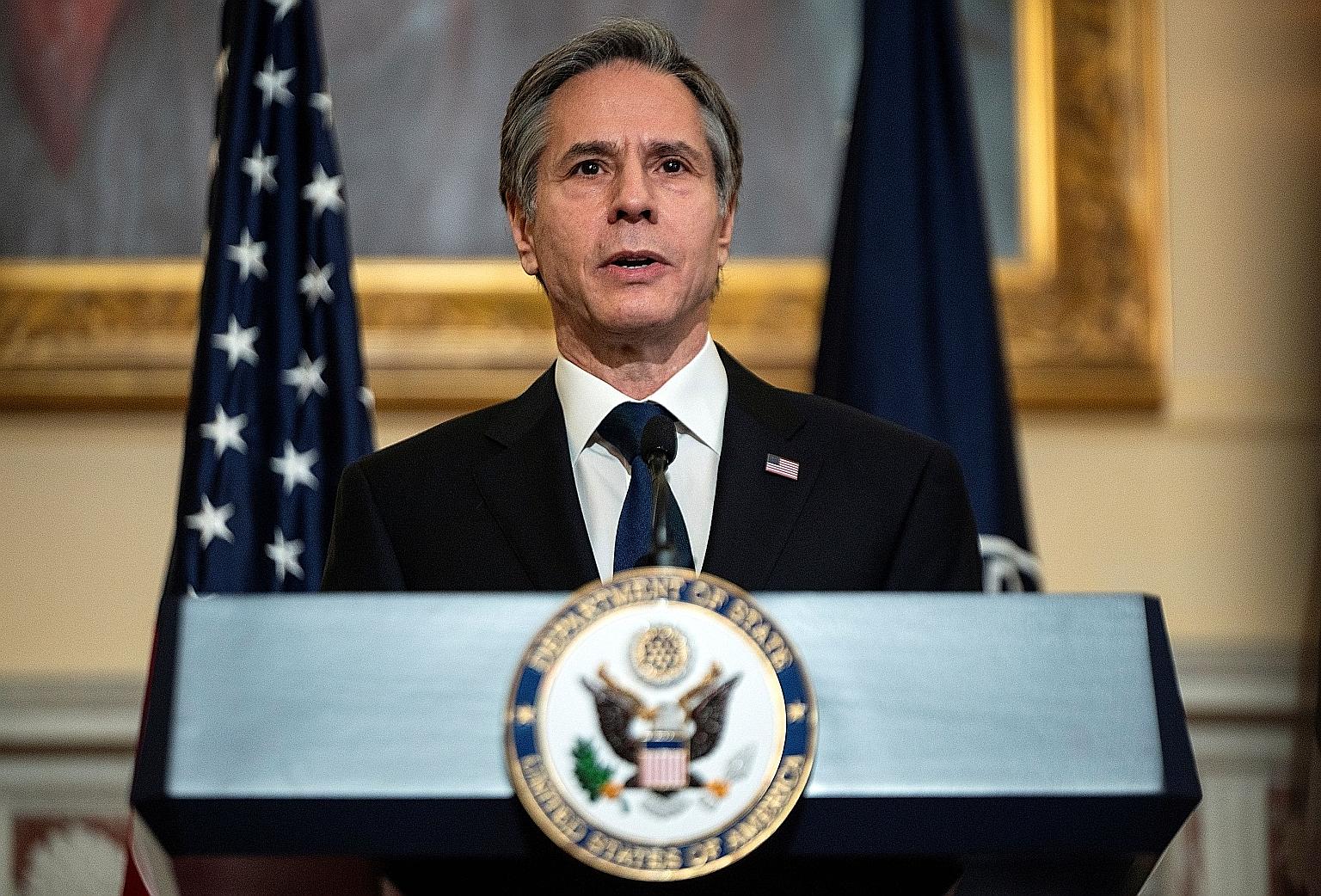Blinken singles out China as biggest geopolitical test for US
Top US diplomat views China as only country with enough power to challenge current global order
Sign up now: Get insights on Asia's fast-moving developments

US Secretary of State Antony Blinken said that America's "relationship with China will be competitive when it should be, collaborative when it can be, and adversarial when it must be. The common denominator is the need to engage China from a position of strength".
The United States' top diplomat has called America's relationship with China the biggest geopolitical test of the century, elevating it to one of the Joe Biden administration's key foreign policy concerns alongside other challenges like promoting democracy and tackling climate change.
"China is the only country with the economic, diplomatic, military and technological power to seriously challenge the stable and open international system," Secretary of State Antony Blinken said on Wednesday, as he outlined the administration's broad foreign policy agenda in his first major speech since taking office.
"Our relationship with China will be competitive when it should be, collaborative when it can be, and adversarial when it must be. The common denominator is the need to engage China from a position of strength," he said in his address delivered at the State Department.
Despite earlier concerns that Washington would no longer confront Beijing as rigorously after Mr Biden was elected, strategic competition with China has been the watchword of President Biden and his officials' foreign policy remarks so far.
It was similarly front and centre in the interim national security guidance document issued by the White House on Wednesday. The paper outlined the administration's view of the global landscape and its foreign policy priorities, and will be a compass for Washington's national security agencies.
The document said that China "has rapidly become more assertive" and that its leaders sought unfair advantages in many areas, behaved aggressively and coercively, and undermined the rules and values underpinning an open and stable international system.
"When the Chinese government's behaviour directly threatens our interests and values, we will answer Beijing's challenge," the document said.
But it added that "strategic competition does not, and should not, preclude working with China when it is in our national interest to do so", listing climate change, global health security, arms control and nonproliferation as some of the areas in which Washington would welcome Beijing's cooperation.
The administration will also double down on building partnerships.
"Our vital national interests compel the deepest connection to the Indo-Pacific, Europe and the Western Hemisphere," the document said. "We will deepen our partnership with India and work alongside New Zealand, as well as Singapore, Vietnam and other Association of South-east Asian Nations member states, to advance shared objectives."
Mr Blinken in his speech said that America must work with allies and partners in engaging China.
"Our combined weight is much harder for China to ignore," he said. In particular, he vowed that the US would engage in diplomacy and with international organisations, stand up for human rights in Xinjiang and democracy in Hong Kong, and insist on a level playing field with China.
The priorities were an implicit repudiation of the America First approach of former president Donald Trump, who gave multilateral institutions short shrift and was more muted than Congress on human rights issues concerning China.
Mr Blinken said Mr Biden's foreign policy would be a departure from that of the Trump administration, particularly when it came to trade and democracy promotion.
"We're looking at the world with fresh eyes," said Mr Blinken.
America will no longer undertake "costly military interventions" or attempt to overthrow authoritarian regimes by force to advance democracy, he said.
"We will do things differently."
He also acknowledged past missteps on trade and vowed a new approach that would uphold the interests of American jobs and workers, and take aim at intellectual property theft and currency manipulation.
Beijing has previously hit out at what it perceives as Washington's drive to isolate it.
Echoing that sentiment, Mr Hu Xijin, editor-in-chief of the state-owned tabloid Global Times, said in response to Mr Blinken's speech that US containment posed an even more severe challenge to China. "Isn't it a sacred responsibility of Washington and Beijing to control their strategic anxiety respectively and give the two countries a chance to reasonably resolve their divergences and achieve a win-win result?" Mr Hu wrote on Twitter yesterday.


